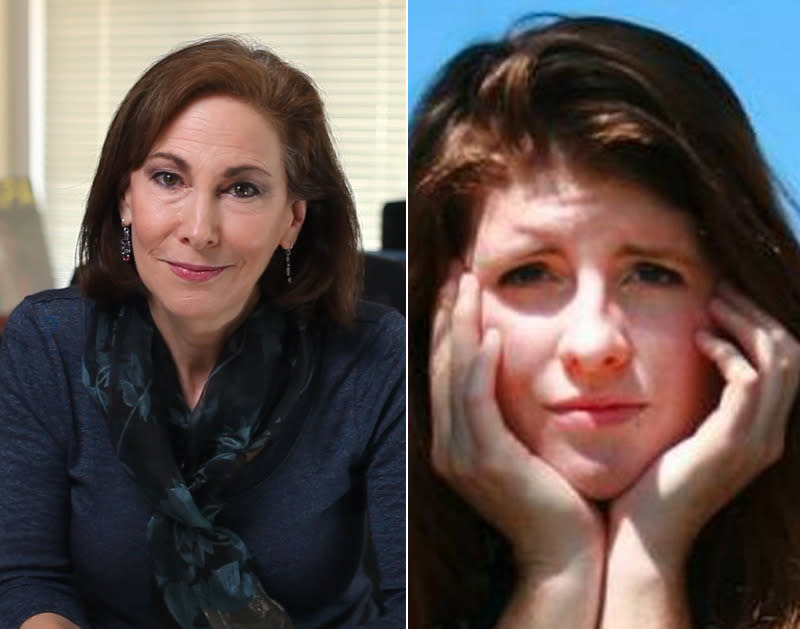Why We Can’t Get Enough of Advice Columns

Is there an advice column you love? (Photo: Nadeen Nakib for Yahoo Health)
Slate announced yesterday (Nov. 9) that Emily Yoffe would be stepping down as the site’s advice-giving “Dear Prudie” columnist, passing on the reins (the pen? The keyboard?) to The Toast co-founder Mallory Ortberg. And the Internet went bananas, simultaneously mourning the end of an era and trying to keep from exploding with glee about what this (hip, feminist) new Prudie would have to say to advice-seekers everywhere.

Emily Yoffe, left; Mallory Ortberg, right. (Photo: Slate/Twitter)
As the online news-opinion site said itself in the announcement yesterday, “Slate has been in the advice game almost as long as the magazine has been around,” with an advice columnist on the masthead since 1997.
Advice columns themselves became mainstream in the mid-1950s. In 1955, Esther “Eppie” Lederer launched her “Ask Ann Landers” column; a year later, her identical twin sister Pauline Phillips became a household name by giving advice to those who wrote in to her “Dear Abby” column.
Few cultural trends have a shelf life of more than a few years at best. Yet, the advice column has endured — for almost 20 years at Slate, and over 60 years in our collective consciousness. What is it about asking for, and receiving, advice from total strangers, that is so irresistible?
Here’s the funny thing: When advice is unsolicited, research shows that we actually respond with defiance. But an advice column is a different — it’s probably more akin to visiting a psychic: You’re there to believe. As author Sheila Kohler writes, “If we are lucky enough to find an expert in the field, someone who will give us timely and precise advice with our good and not his own at heart it can be very useful I have found.”
Related: The Controversial Secret to a Happy Marriage
And for those of us who can’t stop reading advice columns? What’s with the obsession? Well, not only do the columns make for good entertainment, but they probably help us feel better about ourselves. (We may also secretly seek out a good morsel or two of sage wisdom.)
In reading an advice column, the reader becomes more positioned with the advice-giver than the advice-seeker — and thus, as clinical psychologist Leon Seltzer, PhD, writes in Psychology Today, he or she may position him or herself in competition with the person in need of advice. After all, he writes, this is why “you might harbor vague, uneasy suspicions that what they’re proposing may somehow be meant as much for themselves as for you.”
But unlike real-life, in-person advice, when it comes to an advice column, if you don’t like what the advice-giver has to say, you – the seeker, the reader – aren’t left to politely fend off an opinion you may not agree with. This is all part of the safety net of the advice column: You don’t have to worry about any egos involved. The advice columnist doesn’t know you, isn’t trying to manipulate you, or isn’t trying to put you down to build him or herself up. Seemingly, the columnist really does just want to help. And if you don’t like what he or she has to say? Eh, no big deal. It’s not like you’ll ever see ‘em again.
Related: 6 Popular Pieces of Relationship Advice We Give but Never Take
When we read advice, we get to peer into other people’s lives, compare our situations to those of others, and glean any of the helpful pointers dispensed along the way — all while disregarding the bits we consider irrelevant. It’s therapy without leaving your house, having to fork over $150 an hour, and wondering if your therapist thinks you’re crazy. (Spoiler alert: He/she doesn’t.)
Advice columns give us a peek into the lives of others and, better still, the advice of others. We get to see how other people act, think, speak, process, and react — all without having to leave the comfort of our homes, or easier still, our desks. It is a controlled, safe place to compare our own situations to those of total strangers… to measure the relative normalcy of our own experiences, while also getting to engage in emotional experiences we would never have otherwise.
And so not only do we continue to ask, but we continue to read.
Read This Next: 5 Tips for Finding (and Keeping) the Relationship You Want

